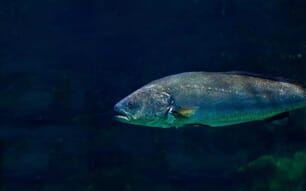The new Best Practice Framework (BPF) for the Management of Fishing Gear, developed by the Global Ghost Gear Initiative (GGGI), is the first in the world to recommend practical solutions and approaches to combat ghost fishing across the entire seafood supply chain – from gear manufacturers, to port operators, to seafood companies.
Ghost gear refers to fishing equipment which has been abandoned, lost or otherwise discarded that is now causing harm to fisheries and ocean ecosystems. Each year, an estimated 640,000 tons of such fishing gear is lost or abandoned in the world’s oceans, estuaries, and bays. Whether intentionally discarded or accidentally lost, this gear persists for hundreds of years and entangles marine wildlife, adds to ocean waste, and causes significant financial loss for fishers and marine communities.
More than 40 organisations from across the seafood industry, NGOs, and fishing communities have responded during an ongoing 10-week consultation process and helped shape the final document. Six webinars were also held with stakeholder groups in different regions, including Europe and North America. A survey during the consultation period showed that 28% of respondents said ghost gear is a significant sustainability issue for their business, while 37% said ghost gear is a moderately or highly significant issue for them.
“Advancements to fishing gear design, sourcing decisions, and fishing policies can significantly reduce the impact of ghost gear on marine ecosystems, livelihoods, and wildlife,” said Lynn Kavanagh, Campaign Manager for Oceans and Wildlife at World Animal Protection, the GGGI’s founding participant. “The framework recommends practical, detailed approaches to combat ghost gear, each with an accompanying case study on how changes have been achieved in practice. These include net recycling programs, derelict gear removal initiatives, and fishing management policy adjustments, among others.”
“The Best Practice Framework fills a vital need for the seafood industry,” said Jonathan Curto, Sustainability Coordinator at TriMarine, a GGGI participant. “Reducing ghost gear is important to all of us, and the practical guidance and case studies the BPF provides will help companies to implement positive changes and processes across the seafood supply chain. The GGGI looks forward to working with stakeholders to implement the recommended best practices to sustainably manage fishing gear.”
Dave Parker, Marine Biologist and Head of CSR at Young’s Seafood, a GGGI participant, said: “As the UK’s number one fish and seafood business, we believe that a fish-loving nation is a happier nation, now and for generations to come. We recognise that the Best Practice Framework will not only help other suppliers and retailers to increase their productivity, but will ensure a better environment for all marine users and wildlife. This is why we have helped resource the GGGI, and we hope this announcement will encourage others to make a commitment to its continuing success.”
Ally Dingwall, Aquaculture and Fisheries Manager at Sainsbury’s, another GGGI participant, added, “Our customers have showed us that they care about the sustainability of their food, which is why we are building the principles of the Best Practice Framework into our sourcing policies. As a founding member and active participant of the GGGI, we are fully supportive of the launch of the BPF and urge other stakeholders from across the industry to make use of this important toolkit.”
The Framework can be found on the GGGI website. Industry feedback is still welcome by visiting http://www.ghostgear.org/best-practice-consultation

